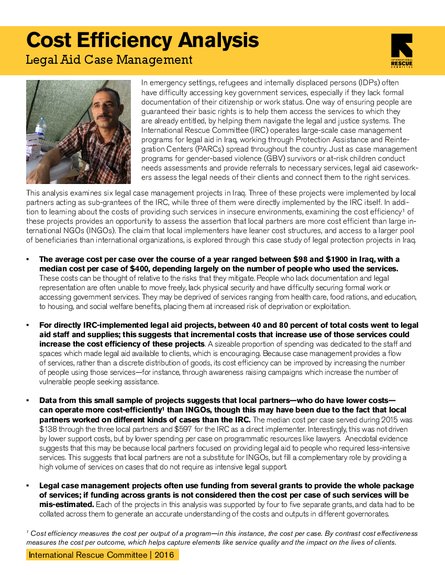
In emergency settings, refugees and internally displaced persons (IDPs) often have difficulty accessing key government services, especially if they lack formal documentation of their citizenship or work status. One way of ensuring people are guaranteed their basic rights is to help them access the services to which they are already entitled, by helping them navigate the legal and justice systems. The International Rescue Committee (IRC) operates large-scale case management programs for legal aid in Iraq, working through Protection Assistance and Reintegration Centers (PARCs) spread throughout the country. Just as case management programs for gender-based violence (GBV) survivors or at-risk children conduct needs assessments and provide referrals to necessary services, legal aid caseworkers assess the legal needs of their clients and connect them to the right services.
This analysis examines six legal case management projects in Iraq. Three of these projects were implemented by local partners acting as sub-grantees of the IRC, while three of them were directly implemented by the IRC itself. In addition to learning about the costs of providing such services in insecure environments, examining the cost efficiency of these projects provides an opportunity to assess the assertion that local partners are more cost efficient than large international NGOs (INGOs). The claim that local implementers have leaner cost structures, and access to a larger pool of beneficiaries than international organizations, is explored through this case study of legal protection projects in Iraq.
